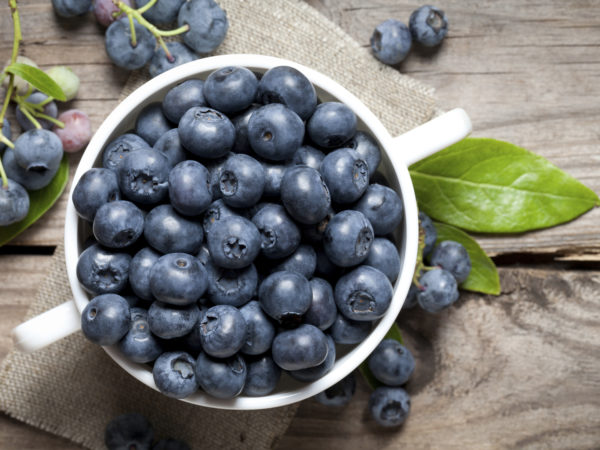Are Cooked Blueberries Healthy?
I like to cook a bag of frozen blueberries with a little lemon juice and tiny bit of sugar, and spoon it over a chopped orange. Does heating blueberries negatively affect the amount or quality of the antioxidants they contain?
Andrew Weil, M.D. | September 18, 2008

I’m a big fan of blueberries (and all berries, for that matter). They’re delicious and pack a powerful antioxidant punch: you would have to eat five servings of peas, carrots, apples, squash or broccoli to get the antioxidants contained in one half cup of blueberries.
Anthocyanins, the pigments that make blueberries blue, are the antioxidant compounds responsible for their health benefits. These delicious berries are also a good source of fiber – a half-cup serving gives you almost three grams. What’s more, blueberries are a healthy low-glycemic-load carbohydrate, a good source of both vitamin C and ellagic acid, a natural compound that inhibits tumor growth in laboratory mice. And, like cranberries, blueberries contain a substance that can help prevent urinary tract infections by interfering with the attachment of bacteria to the bladder wall. Fresh, frozen and dried blueberries are all equally beneficial and heating or cooking blueberries won’t affect the amount or quality of antioxidants they contain.
Whether you cook them or not, when choosing blueberries, I would urge you to opt for organic ones even though they’re more expensive than conventionally grown ones. It is true that conventionally grown blueberries rank toward the low end of the Environmental Working Group’s list of fruits and vegetables that carry the greatest pesticide load (see www.ewg.org/sites/foodnews). However, after having talked with growers in Massachusetts, Michigan, and British Columbia, I am not reassured about the use of pesticides on conventionally grown blueberries. If you can’t afford to buy organic ones, consider other fruits and vegetables that provide many of the same health benefits. Purple grapes, red cabbage, beets and plums all contain anthocyanins.
Andrew Weil, M.D.










